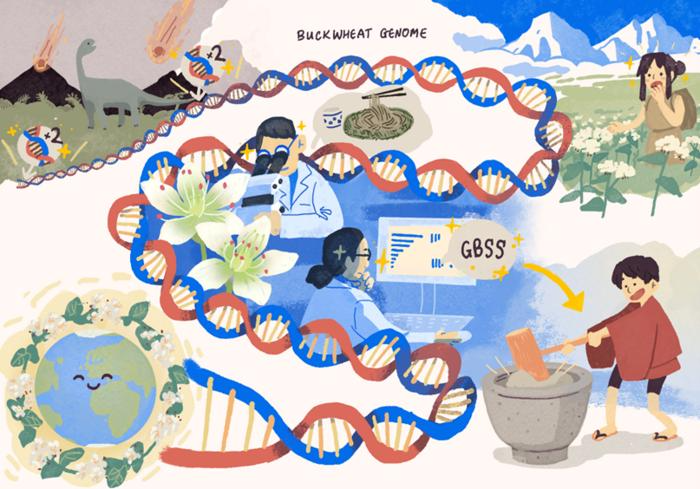Reviewed by Danielle Ellis, B.Sc.Aug 14 2023
The high-precision chromosomal-level genome sequence of buckwheat has been decoded by a research group led by Kyoto University’s Graduate School of Agriculture, which is an important step toward unraveling the evolution of the buckwheat genome and the origins of the cultivated crop.
 Present genomic sequencing uncovers domestication history and opens up future opportunities for breeding. Image Credit: KyotoU/Robin Hoshino
Present genomic sequencing uncovers domestication history and opens up future opportunities for breeding. Image Credit: KyotoU/Robin Hoshino
The researchers successfully developed a self-fertile buckwheat variety and also a new type of crop with a sticky, mochi-like texture by altering specific genes using a method distinct from common genome-editing techniques. This breeding technique might very well contribute to a broader range of orphan crops than current genome editing technologies.
The dependence on three major grain crops—rice, wheat, and corn—has increased as a result of the world population’s predicted increase to 9.7 billion people by 2050, which has sparked interest in less-common orphan crops. A critical step toward achieving the Sustainable Development Goals of “Zero Hunger,” “Good Health and Well-Being,” and “Responsible Consumption and Production” is the decipherment of these crop genomes using next-generation sequencing technologies.
The international research team that made these discoveries is guided by Yasuo Yasui from Kyoto University’s Graduate School of Agriculture and includes RIKEN, Japan’s National Agriculture and Food Research Organization, Chiba University, Kyoto Prefectural University, Kazusa DNA Research Institute, The Graduate University for Advanced Studies or SOKENDAI, Yunnan Agricultural University, and the University of Cambridge.
Source:
Journal reference:
Fawcett, J. A., et al. (2023). Genome sequencing reveals the genetic architecture of heterostyly and domestication history of common buckwheat. Nature Plants. doi.org/10.1038/s41477-023-01474-1.